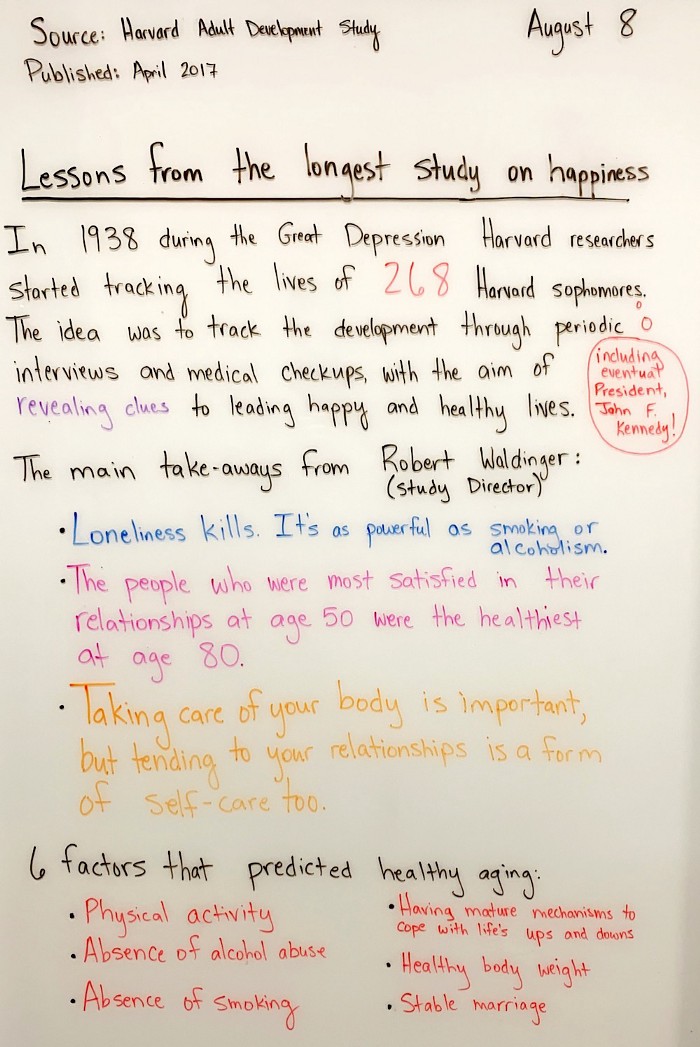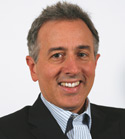Happiness is a Warm Rocket
by Lou Zacharilla
New York City, September 1, 2022--“Happiness is a warm gun,” the Beatles sang back in the 1960’s on their iconic White Album. Let’s update that for 2022, the Age of the Better Satellite World, and claim with scientific evidence that “happiness is building a warm rocket TOGETHER.”
Zoom zoom, zoom zoom!
“Happy? Who’s happy?” Cosmo, the padrone in the warm-hearted American file “Moonstruck” complains, suggesting that no one is or ever can be.
Wrong, says the science.
But what produces happiness anyway? Hint: it may be related to what you do at IBC.
Let’s break it down to its essence and ask: is happiness having the most prestigious or most high-paying job?
No.
Is it when work doesn’t feel like work? Kind of.
I never liked to work. Never liked the idea of having a regular “job” and never cared about building a “career.” They could pay me NBA point guard money and I would never do something I did not want to do, or that didn’t define me or simply feel intuitively right. There is no way I would ever pull myself out of bed in the morning to face what Cardinal Timothy Dolan refers to as each day’s “heroic first five minutes” for bread alone.
guard money and I would never do something I did not want to do, or that didn’t define me or simply feel intuitively right. There is no way I would ever pull myself out of bed in the morning to face what Cardinal Timothy Dolan refers to as each day’s “heroic first five minutes” for bread alone.
 guard money and I would never do something I did not want to do, or that didn’t define me or simply feel intuitively right. There is no way I would ever pull myself out of bed in the morning to face what Cardinal Timothy Dolan refers to as each day’s “heroic first five minutes” for bread alone.
guard money and I would never do something I did not want to do, or that didn’t define me or simply feel intuitively right. There is no way I would ever pull myself out of bed in the morning to face what Cardinal Timothy Dolan refers to as each day’s “heroic first five minutes” for bread alone.
But tell me there is a chance I will have a great conversation that day with a colleague or even a personal friend, or do a Podcast with an industry celebrity like Alex Fielding or Frank White and I will jump out of bed and brush my teeth with the flair of an orchestra conductor to get the music started!
Why the 'Great Resignation' Did Not Hit the Satellite Industry
When the Great Resignation came along during COVID millions of people stopped working because they didn’t want to go to places where they felt unfulfilled and unhappy. Yet thousands of people in the space and satellite industry kept doing what they are doing. I do not know of one person in the industry who was part of the Great Resignation, which was a response in most cases to lame jobs that led to unhappiness.
Happy Lives Matter. Why?
Turns out that there is a secret to happiness. But for you it may not be a big secret.
Harvard University has been conducting a very deep and thorough study on human happiness since 1938. Yes. Since the Great Depression. The project today follows the lives of 724 people, including today spouses and family members from an original cohort of which 6% are still with us, to determine the source and substance of their happiness or lack of it.
Robert Waldinger, the current Director of the Harvard Study of Adult Development, which is the most comprehensive longitudinal study in the history of the human species, concluded in one of his many TED Talks, each of which get more views than there are people in most large Chinese cities https://www.youtube.com/watch?v=8KkKuTCFvzI something that the Beatles concluded in another of their songs. “Money can’t buy me love.”
Waldinger summarizes it this way, “It turns out that the best things in life are not THINGS.”
For those who are genuinely happy it’s not the rocket so much as the community and the relationships that we call the space and satellite industry. It is what we do to get that rocket made and to get it aloft and operational together and in relationship that is the real turn-on.
The Harvard study goes so far back that one of its initial subjects was USA President John F. Kennedy, a Harvard graduate. President Kennedy’s life was tragically short, and his murder flooded the world with unhappiness. But he left a legacy that has created happiness of the kind the study from Harvard University says is everlasting and real.
He helped inspire and kickstart the industry we love and the work we do.
What we really love and what gives us happiness unique to most industries is the environment, stressful as it seems, in which our work is done. According to the data from the study, “good relationships are predictors of who lived longer and who would grow old in a healthier way.”
Society’s trends, unfortunately, are heading another way:
• 25% of people in the USA reported that they are “less connected than they want to be.
• In 1983, 12% of the population said they lacked a friend, buddy or “a confidant” with whom they could share heavy issues. 10 years later the number rose to nearly 25%. It keeps rising.
• According to researcher Robert Putnam, the decline in the creation of “social capital” has also been declining since the 1950’s, parallel to factors like the demise of the family dinner and the rise of TV. As for social media, it is like inviting loneliness into your soul.
Those who are happiest, it turns out, feel supported socially and by colleagues. They have meaningful work that (probably) doesn’t feel like work. They also know they are working for a cause greater than themselves.
Heck, this industry is so happy, according to Hall of Fame inductee, Kathy Lueders, NASA’s Associate Administrator for Human Exploration and Operations Mission Directorate, that it is making lettuce taste like chocolate for the trip we will someday make to Mars. Imagine that! Who does that if they aren’t happy and don’t like lettuce?
And we do it together. Always. As astronaut and author Nicole Stott says in her new book Back to Earth, the virtue of being an astronaut is that the crew is everything. It looks out for one another. It defies the odds, solves problems and feels a collective accomplishment. Nicole says, “Let’s treat our lives here as though we were crew members.” https://www.sspi.org/articles/better-satellite-world-podcast-this-planets-on-fire-episode-5-code-blue
For those of you attending IBC, you should know that Amsterdam is NOT among the world’s top 20 Happiest Places this year, according to the 10th annual report on global happiness. So let’s be sure that the happiness-creating engine called the space and satellite industry lifts the spirits and happiness quotient of our host city and nation!
---------------------------------
 Lou Zacharilla is the Director of Innovation and Development of the Space and Satellite Professionals International (SSPI). He can be reached at: LZacharilla@sspi.org
Lou Zacharilla is the Director of Innovation and Development of the Space and Satellite Professionals International (SSPI). He can be reached at: LZacharilla@sspi.org





